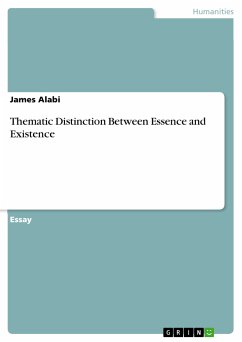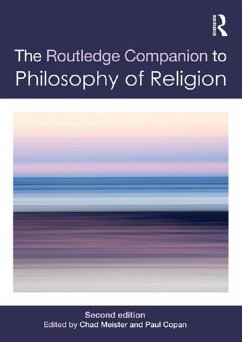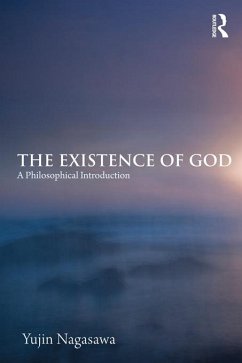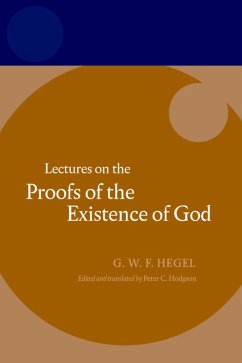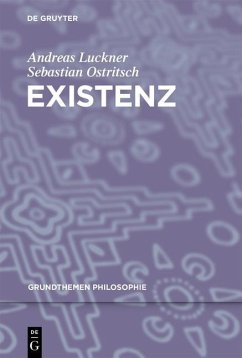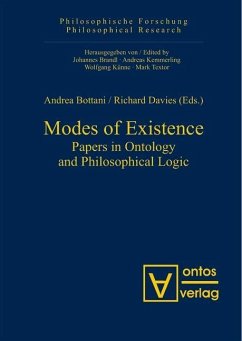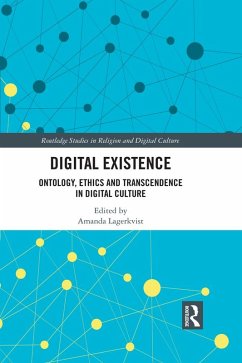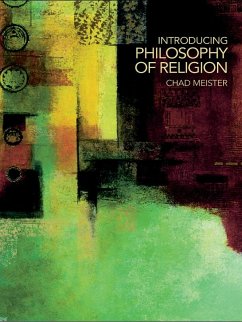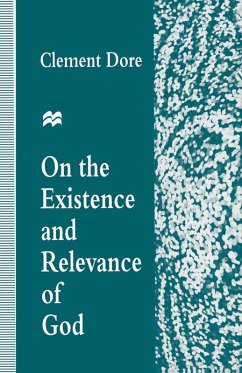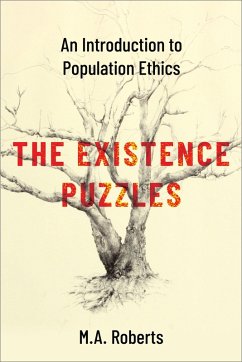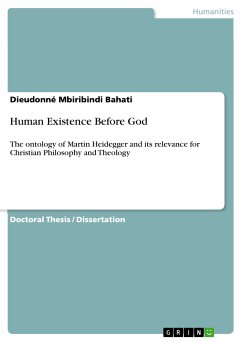
Human Existence Before God (eBook, PDF)
The ontology of Martin Heidegger and its relevance for Christian Philosophy and Theology
Versandkostenfrei!
Sofort per Download lieferbar
Statt: 52,95 €**
39,99 €
inkl. MwSt. und vom Verlag festgesetzt.
**Preis der gedruckten Ausgabe (Broschiertes Buch)
Alle Infos zum eBook verschenkenWeitere Ausgaben:

PAYBACK Punkte
0 °P sammeln!
Doctoral Thesis / Dissertation from the year 2019 in the subject Philosophy - Miscellaneous, grade: 1, University of Innsbruck (Christliche Philosophie), language: English, abstract: In our study, we do not just demonstrate that the analysis of Dasein, in the philosophical project of the first Heidegger was necessary and prior to the understanding of the question of the meaning of being, but also we explained, in the other section of our research that the philosophical project of the second Heidegger regarding the question of the meaning of being intended to demonstrate that there is a relatio...
Doctoral Thesis / Dissertation from the year 2019 in the subject Philosophy - Miscellaneous, grade: 1, University of Innsbruck (Christliche Philosophie), language: English, abstract: In our study, we do not just demonstrate that the analysis of Dasein, in the philosophical project of the first Heidegger was necessary and prior to the understanding of the question of the meaning of being, but also we explained, in the other section of our research that the philosophical project of the second Heidegger regarding the question of the meaning of being intended to demonstrate that there is a relationship between Dasein and God, a relationship which connects the question of the meaning of being not just to the truth of being, through das Ereignis but also to the event of the poetic God, in the light of the being-Die Lichtung des Seins. This new understanding of the development of the philosophy of Martin Heidegger offers a possibility to systematize the relationship between philosophy and theology in the thinking of Martin Heidegger. On one hand, we explained that no one can deny the theological origin of Martin Heidegger and his theological affiliations. On the other hand, we also showed how throughout his life, Heidegger reacted against a theology that is too philosophically influenced and wanted to make clear that his thinking should be either theistic or atheistic and never both at the same time. It has to be a discourse about God which is not the return to the old onto-theology but it requires that one constructs a more poetic discourse about God and attempts to interpret the divine and the sacred not as God as such but as names that one uses to refer to God. This poetic discourse, however, has some relevancies in a Christian tradition, especially if one looks at the concept of revelation of the undescribed Last God which is close to the understanding of revelation in the Christian tradition. The second part of our study tried to ask the question of being but in a new perspective, according to the method of transcendental philosophy. We have emphasized how indeed, there is a link between the existential phenomenology of Martin Heidegger and the research in neo-scholastic ( Joseph Maréchal, J.B. Lotz, K. Rahner and Emerich Coreth, Otto Muck, all Jesuits Fathers) thought about the question of being as the foundation of beings, as the foundation of what is there. It is a sort of a further development of the ontology of Heidegger in the perspective of Christian philosophy and theology.
Dieser Download kann aus rechtlichen Gründen nur mit Rechnungsadresse in A, B, BG, CY, CZ, D, DK, EW, E, FIN, F, GR, HR, H, IRL, I, LT, L, LR, M, NL, PL, P, R, S, SLO, SK ausgeliefert werden.




